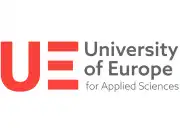Master's degree programs in Germany
- Brief overview of Master's programs in Germany
- Features of Master's programs in Germany
- Advantages of Master's programs in Germany
- Challenges of Master's programs in Germany
- German universities offering Master's programs
- Admission requirements for Master's programs in Germany
- Required documents for Master's program applications in Germany
- Tuition costs for Master's programs in Germany
- Scholarships and grants for Master's programs in Germany
- Career prospects after Master's programs in Germany
- Is it worth studying Master's programs in Germany?
- Frequently Asked Questions

Master of Science - Computer Science and Software Engineering
Constructor University - Bremen, GermanySchaffhausen Institute of Technology (SIT) and Constructor University Bremen jointly provide a Master of Science in Computer Science and Software Engineering (MSc CSSE) program that combines a research-driven approach, a strong academic atmosphere, and direct linkages to the corporate sector.
The…

Master of Science - Advanced Software Technology
Constructor University - Bremen, GermanyComprehensive instruction in advanced computing paradigms, data-driven analysis, and software development is offered via the Master's Program in Advanced Software Technology, which was established in partnership with JetBrains.
The goal of this curriculum is to give students strong skills…

Master of Arts - New Media Design
University of Europe for Applied Sciences - GermanyOur society is becoming more mobile, and thanks to digital media, concepts like "space" and "distance" are undergoing a fundamental transformation.
Today, an entire industry focuses on communicating and producing information, brands, and experiences in media spaces.
UE teaches…

Master of Arts - Photography
University of Europe for Applied Sciences - GermanyOur MA program expands your photography knowledge.
You'll understand contemporary art practices and requirements, maximizing artistic and professional potential. Our curriculum encourages you to explore the cultural, political, and social significance of photography and to develop an individual…

Master of Arts - Communication Design
University of Europe for Applied Sciences - GermanyUE's Master's in Communication Design combines theory and practice to strengthen knowledge and skill set and develop relevant solutions and an advanced design process.
The program promotes creative design skills, art and design theory and history, the ability to critically analyze contemporary…

Master of Arts - Visual and Experience Design
University of Europe for Applied Sciences - GermanyDesign roles are always changing.
Modern design incorporates physical and digital media.
Experience design helps companies deliver brand, product, and service messages and engage customers through digital touchpoints. While many experiences involve multiple senses, visual communication…

Master of Arts - Innovation Design Management
University of Europe for Applied Sciences - GermanyThis master's program combines art and business.
Its purpose is to create individuals willing to tackle complex problems in a quickly changing world and able to apply creative, business, and technological abilities.
This is done through high-intensity project activities in close…

Master of Science - Data Science for Society and Business
Constructor University - Bremen, GermanyData Science for Society and Business (DSSB) is a 2-year master's degree for business and social science students interested in data science. The curriculum is also appealing to health and environmental science majors who want to extend into big data analytics, data-driven, and computational social…

Master of Science - Supply Chain Management
Constructor University - Bremen, GermanyStudents learn data analytics, data engineering, and management skills to manage supply chains. Students will learn how to build and sustain high-performance global logistics systems. The program focuses on data analytics, data engineering, and modern leadership and management. This includes analyzing…

Master of Science - Data Engineering
Constructor University - Bremen, GermanyThe graduate program in Data Engineering provides an interesting and in-depth look at the approaches and technology used in this rapidly increasing field.
The curriculum integrates big data features of "Data Analytics" and "Data Science" with the technological problems of data collecting,…
Brief overview of Master's programs in Germany
Germany is one of the most attractive destinations for higher education in Europe. Master's programs here are distinguished by high academic standards, a wide range of specializations, and the possibility of studying in English. Master's programs in Germany typically last 1 to 2 years and include both theoretical studies and applied research. International students constitute a significant portion of the student community, creating a truly international educational environment.
Most master's programs at public universities in Germany are tuition-free or require only a minimal administrative fee, which is especially notable compared to the high tuition costs in other European and North American countries.
Features of Master's programs in Germany
Master's programs in Germany have several unique characteristics:
- Internationalization: Over 1,500 programs are offered entirely in English, making Germany accessible to international students without German language proficiency.
- Practical Orientation: The curriculum actively incorporates research projects and internships with companies, allowing students to develop applied skills and build professional networks.
- Engineering, Natural Sciences, IT are the most popular and in-demand fields where Germany is considered a global leader.
- Freedom of Choice: Students can customize part of their study plan, select elective courses, and participate in academic mobility programs (such as Erasmus+).
- Tuition-free at Public Universities: This makes Germany particularly attractive for students seeking quality education without significant financial investment.
Advantages of Master's programs in Germany
Studying for a master's degree in Germany offers international students several key benefits:
- High Education Quality: German universities rank highly in global rankings like QS, THE, and ARWU.
- Affordable Living and Study Costs: In most states, students only pay a semester fee ranging from €150 to €350.
- Work During Studies: Students are permitted to work up to 120 full or 240 half days per year.
- Post-Graduation Stay: After completing their master's, graduates can remain in Germany for 18 months to seek employment.
- Direct Access to German Job Market: Germany faces shortages of specialists in IT, engineering, healthcare, etc.
- Internationally Recognized Degree: A German master's degree is valued worldwide.
Challenges of Master's programs in Germany
Despite obvious advantages, there are some difficulties international students may encounter:
- Bureaucracy: The application process can be complex and time-consuming.
Solution: Start preparations early and consult official sources (DAAD, Uni-Assist). - Language Barrier: While studies may be in English, German is needed for daily life and work.
Solution: Enroll in language courses before or during your studies. - Competition for Popular Programs: Especially in technical and business fields.
Solution: Apply to multiple universities and carefully prepare your motivation letter. - Adapting to Education System: Independent work, deadlines, and high standards.
Solution: Utilize student resources, join study groups, and don't hesitate to ask for help.
German universities offering Master's programs
| University | City | Notable Fields |
|---|---|---|
| Technische Universität München | Munich | Engineering, IT, Natural Sciences |
| Ludwig-Maximilians-Universität | Munich | Humanities and Social Sciences |
| Humboldt-Universität zu Berlin | Berlin | Political Science, History, Philosophy |
| RWTH Aachen University | Aachen | Mechanical Engineering, Technology |
| Universität Heidelberg | Heidelberg | Medicine, Biology |
| Freie Universität Berlin | Berlin | International Relations, Culture |
Admission requirements for Master's programs in Germany
- Bachelor's degree recognized in Germany (can be verified via anabin.de)
- Proof of English (IELTS, TOEFL) or German proficiency (TestDaF, DSH) - depending on program language
- Motivation letter (Motivationsschreiben)
- Academic CV
- Recommendation letters from professors or employers
- Portfolio (for creative and architecture specialties)
Required documents for Master's program applications in Germany
- Higher education diploma + academic transcript (with translation)
- Language certificate (English or German)
- CV
- Motivation letter
- 1–2 recommendation letters
- Passport
- Passport-sized photo
- Proof of finances (blocked account or scholarship)
- Additional documents depending on university
Tuition costs for Master's programs in Germany
Public universities in Germany are generally tuition-free. However, students pay a semester fee:
| Expense | Average Amount |
|---|---|
| Semester fee | €150–350 |
| Health insurance | €110–120/month |
| Housing | €250–600/month |
| Food and transportation | €200–300/month |
| Other expenses | €100–150/month |
| Total monthly | ~€850–1,200 |
In Baden-Württemberg and Saxony, additional fees up to €1,500 per semester may apply for non-EU students.
Scholarships and grants for Master's programs in Germany
Main scholarships:
- DAAD (German Academic Exchange Service): from €861/month + health insurance, travel, language courses
- Deutschlandstipendium: €300/month (half from government, half from private sponsors)
- Erasmus+: support for exchange programs
- Political party foundations:
- Heinrich Böll Stiftung
- Friedrich-Ebert-Stiftung
- Konrad-Adenauer-Stiftung
- University-specific scholarships - check individual university websites
Career prospects after Master's programs in Germany
Germany is one of few EU countries where international graduates successfully find employment after studies. A German university degree is highly valued by employers both in Germany and abroad.
What awaits graduates:
- Job Seeker Visa: 18 months after program completion
- High Demand for Skilled Professionals: Especially in IT, engineering, medicine, biotechnology, renewable energy, and data science
- Average Starting Salaries:
- IT and Engineering — €45,000–60,000/year
- Finance and Consulting — €50,000–65,000/year
- Social Sciences and Humanities — €35,000–45,000/year
Example Employers:
- Siemens, Bosch, SAP, BMW, Volkswagen, Deutsche Bank, Fraunhofer Institute
- Small and medium enterprises (Mittelstand), especially in regions with specialist shortages
Opportunities:
- EU Blue Card with salary from €45,300/year
- Visa extension and permanent residence after 33 months of work (or 21 months with B1 language proficiency)
Is it worth studying Master's programs in Germany?
If you're seeking quality, affordable, and internationally recognized education, a German master's program is one of the best choices. No other European country combines such high academic standards with low tuition costs and excellent career prospects.
Pros:
- World-class education
- Free or low-cost tuition
- Opportunity to combine work and study
- Support from government and scholarship organizations
- High chances to stay and build a career in Europe
Ideal For:
- Graduates in technical, natural science, and IT fields
- Those pursuing academic careers or PhD
- Students aiming for international careers
Studying in Germany is an investment that pays off both in terms of knowledge and future career opportunities.
Frequently Asked Questions
- Is German language required for master's studies?
No, if the program is in English. However, German improves employment prospects. - How much is the blocked account for visa?
For 2025 — €11,208 per year (€934 per month). - Can I work while studying?
Yes, international students can work up to 120 full or 240 half days per year. - How long can I stay after graduation?
Up to 18 months for job searching. - Can I apply to multiple universities?
Yes, it's recommended to apply to 3–5 universities via Uni-Assist or directly.